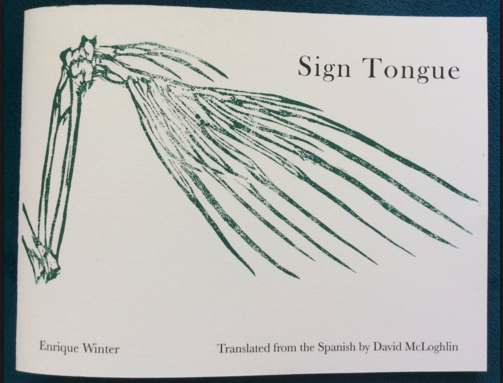The title of Enrique Winter’s new chapbook, “Sign Tongue,” translated by David McLoghlin, poses a challenge for poetry: Can the flat mirror of language contain the fullness of the tongue, the way we taste and even kiss? Can we ever translate a single mother tongue into a form of collective experience when the real has no language at all, but has given rise to so many? Winter, who hails from Chile and has lived and studied in New York, and whose poems appear in “Sign Tongue” side-by-side in English and Spanish forms, understands that to name the world in only one language is to impose borders on his imagination.
Yes, if naming the world was the first thing Adam did, then it was also the task he could never do well enough—besides, of course, keeping Eve happy. How can one word—‘tongue’—mean both the cold and analytical and the warm and sensual? The sign, whether word or image, is always too simple to convey the thing we see.

